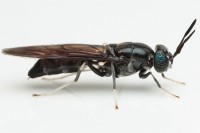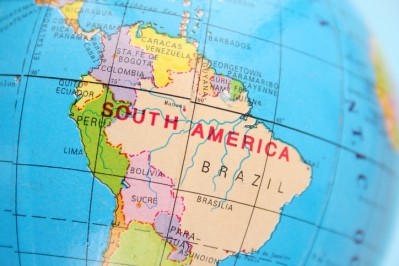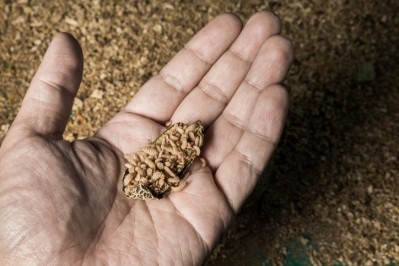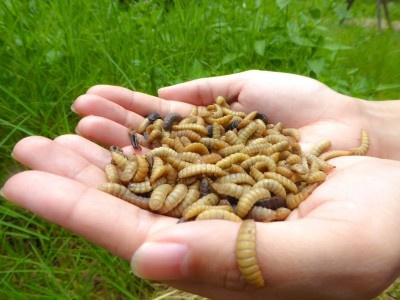INSEACT raises US$1.3m to convert palm oil waste streams into shrimp feed using BSF
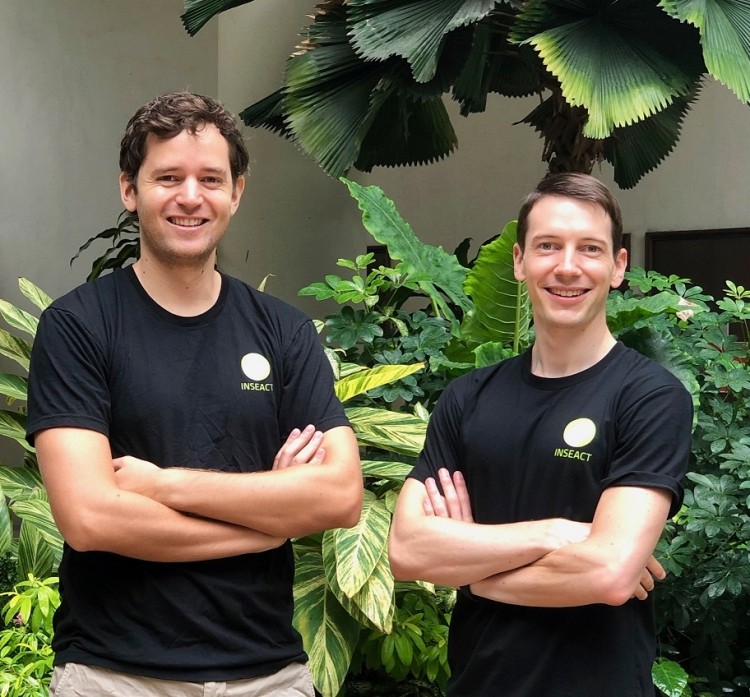
Investors included ADB Ventures, the Asian Development Bank’s venture capital arm, one of the largest global shrimp producers, a European Family Office, Loyal VC, INSEAD Asia Angels Club, as well as various private investors such as INSEAD Business School’s Private Equity professor, Claudia Zeisberger, and co-founder of Europe-based Standard Investment, Idgar Kippersluis
INSEACT specializes in producing sustainable insect protein for aquaculture, starting with shrimp feed. It will use waste from palm oil operations as a raw material to feed its insects with production based on the Black Soldier Fly (BSF).
The production process starts by redirecting waste streams from palm oil production away from carbon-emitting landfills to be bio- converted by BSF. Then, three products will be generated: protein for aquaculture feed, insect oil for livestock feed, and organic fertilizer for farming.
“Alternative proteins will play a critical role in addressing Asia's growing need for sustainable and affordable food supply. We believe INSEACT's unique solution and approach has a real potential to scale. ADB Ventures is excited about backing the team at INSEACT and support them to become a leading player in this fast-paced space," said Kean Ng, venture specialist at ADB Ventures.
The seed funding is being used to build a BSF pilot production and R&D site in Singapore and to begin delivering product to INSEACT’s customers.
We spoke co-founders, Tim van Vliet, CEO of the business, and Michael Badeski, who has taken on the COO role, to hear more.
We first asked them to quantify the benefits of leveraging a palm oil processing waste stream.
“We determined very early on that in order to make this business succeed, we knew very quickly we had to look at the feedstock, and we analyzed all types of feedstocks globally, their volumes in terms of scaling up and pricing, and, as we are an impact driven startup, we assessed the environmental consequences of waste products. We realized that several different parts of the palm oil industry generate a lot of waste. We analyzed the waste streams that are generated at mills sites, and at various processing sites of the palm oil industry, and the various streams met our selection criteria. The volumes are concentrated and relatively consistent throughout the year.
“We are based out of Singapore, which is in the middle of two palm oil giants, Indonesia and Malaysia. We are currently importing the waste from just across the border. The site we are building right now is for R&D purposes, it is a pilot plant. So we will be confirming the feed conversion ratios, etc. [using that raw material],” said the CEO.
Industrial scale production
The company is currently preparing for another round of fundraising to further expand.
“We are planning a Series A in the first quarter of next year, and that will fund expansion of our operations, in Malaysia. That is where we are going to build our first industrial scale unit and where we will be very closely located with the suppliers of the waste streams,” added van Vliet.
INSEACT has been developing a modular insect rearing system catered for flexible and predictable scaling of production capacity. The founders said the system makes scaling-up easy by enabling lean, evidence-based decisions to determine incremental changes in production capacity. They claims its next-gen vertical rearing system drastically reduces its capital costs and boosting overall operational efficiencies.
“The method we are using for production and the way we are scaling allows us to build very close to the feedstock source. This means we can also eliminate the amount of energy and fuel involved in trucking the feedstock back and forth as well as making us more cost-competitive,” said Badeski.
Modular production system
INSEACT’s modular insect rearing system is pioneering, he continued. “This is a new way of producing insects. We are looking at a system that allows us to increase our capacity incrementally, even on one production site. Instead of a single large building we have units and can add more units based on the quality and volume of feedstock supply.
“We are using an amalgamation of technology that is used at a number of other manufacturing and agricultural industries. We are not reinventing the wheel, we are just applying a new combination to a new application; in terms of best practices and safety standards, it is fairly well understood for this equipment already.”
Trial results
Prior to fundraising, INSEACT said it successfully demonstrated market validation to the investors with agreements of purchase, research partnerships and its entomology and engineering team.
“We ran initial lab scale trials in shrimp and the results are very good, showing improved FCR, growth rates as well as different kinds of disease resistance and reduced mortality, and we have signed several agreements with larger shrimp farming organizations in the region.
“The next step for us is to launch numerous commercial-scale trials across the region,” said van Vliet.
INSEACT currently comprises 7 employees. “By the end of the year, we will have between 10 and 13 staff. After the Series A round, we will need to recruit further. One of the reasons we are setting up our headquarters and R&D site in Singapore is the level of talent here.”
